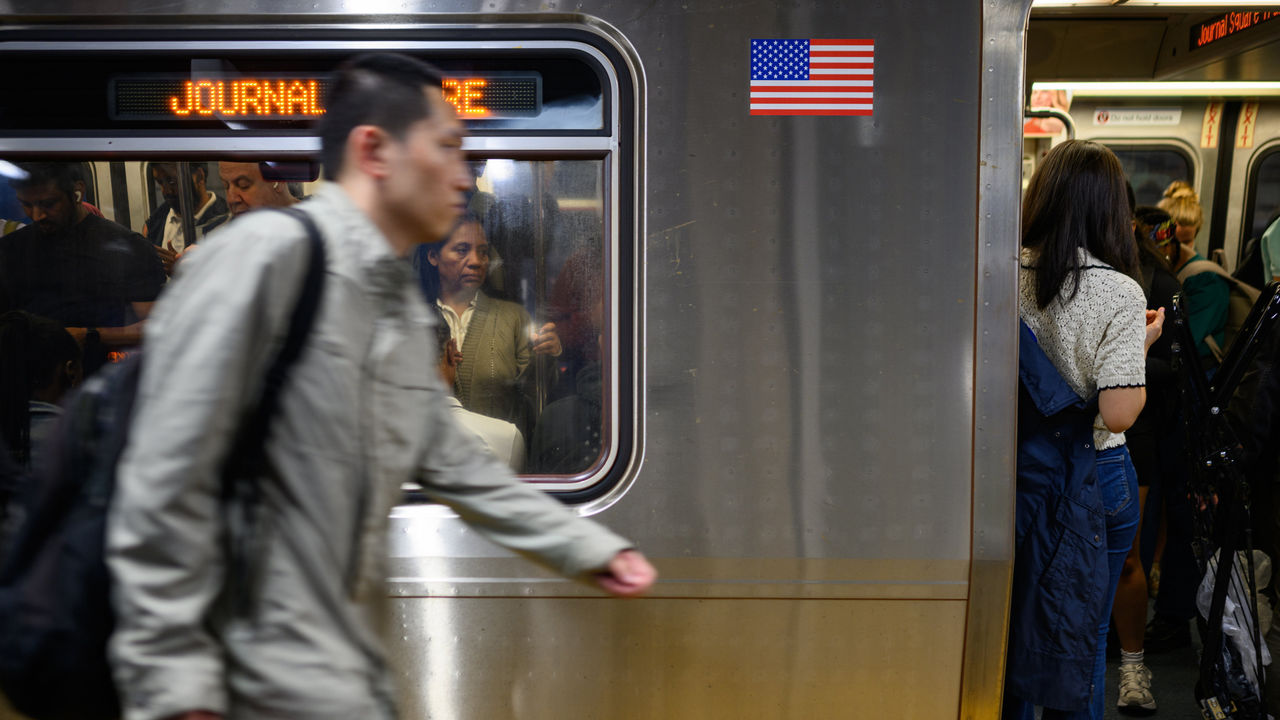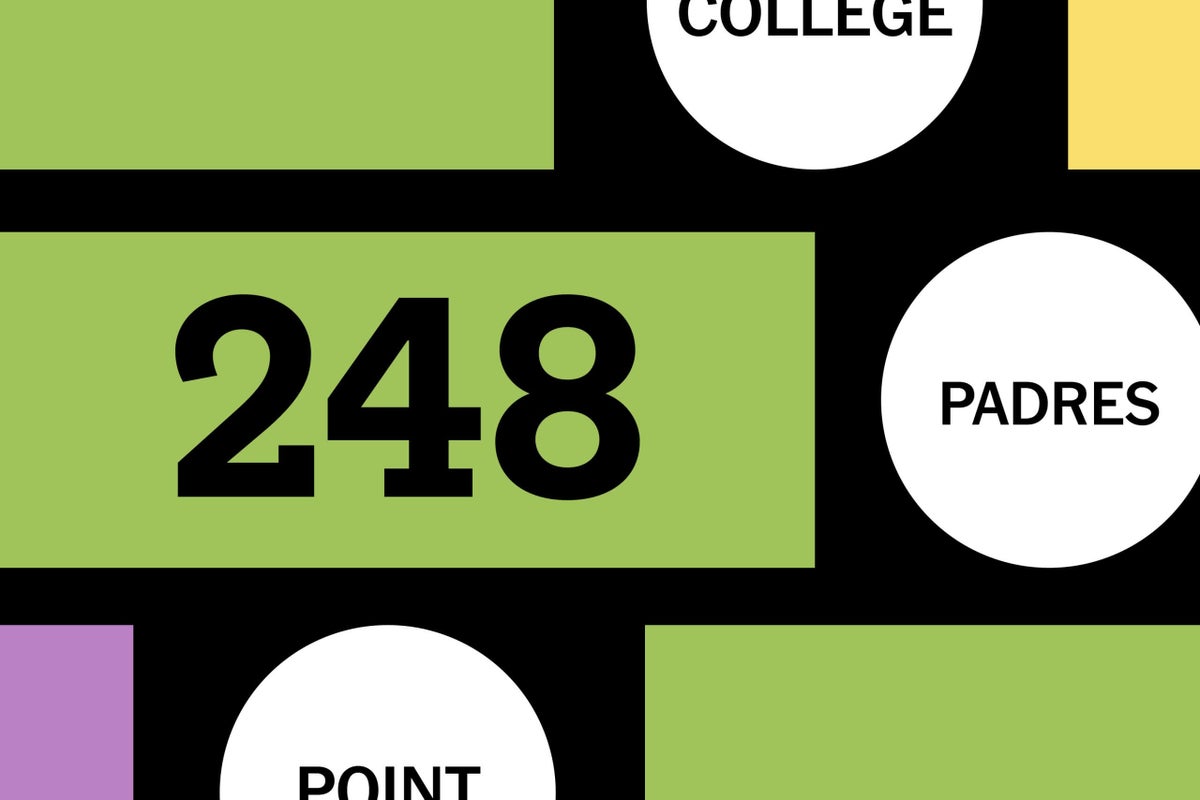AI's Impact On Employment: Why Your Job Is (Probably) Safe For Now

Welcome to your ultimate source for breaking news, trending updates, and in-depth stories from around the world. Whether it's politics, technology, entertainment, sports, or lifestyle, we bring you real-time updates that keep you informed and ahead of the curve.
Our team works tirelessly to ensure you never miss a moment. From the latest developments in global events to the most talked-about topics on social media, our news platform is designed to deliver accurate and timely information, all in one place.
Stay in the know and join thousands of readers who trust us for reliable, up-to-date content. Explore our expertly curated articles and dive deeper into the stories that matter to you. Visit Best Website now and be part of the conversation. Don't miss out on the headlines that shape our world!
Table of Contents
AI's Impact on Employment: Why Your Job is (Probably) Safe for Now
The rise of artificial intelligence (AI) is undeniably transforming the world, sparking widespread concern about its impact on employment. Will robots take our jobs? The short answer is: probably not all of them, at least not yet. While AI-driven automation is undoubtedly changing the job market, the reality is far more nuanced than a simple dystopian future of mass unemployment.
The Hype vs. The Reality of AI Job Displacement
The media often portrays AI as an immediate and existential threat to employment. Headlines scream about robots stealing jobs, painting a picture of widespread job losses across all sectors. However, this narrative often oversimplifies a complex issue. While some jobs are certainly at higher risk of automation than others, the impact of AI is more likely to be a gradual shift in the nature of work, rather than a sudden, cataclysmic event.
Which Jobs Are Most at Risk?
Certain roles are more susceptible to AI-driven automation than others. These typically involve repetitive, rule-based tasks:
- Data entry clerks: AI can process and analyze data far faster and more accurately than humans.
- Telemarketers: AI-powered chatbots can handle many customer service interactions effectively.
- Truck drivers (potentially): Self-driving technology is advancing rapidly, although widespread adoption still faces significant hurdles.
- Manufacturing assembly line workers: Robots are already being used extensively in factories to perform repetitive tasks.
It's important to note that even in these high-risk sectors, complete automation is unlikely in the near future. Human oversight and intervention will likely remain necessary for the foreseeable future.
Which Jobs Are Relatively Safe?
Conversely, many jobs are less susceptible to immediate automation. These often require complex cognitive skills, creativity, critical thinking, and emotional intelligence:
- Doctors and nurses: While AI can assist with diagnosis and treatment, human empathy and judgment remain crucial.
- Teachers and educators: The human connection and personalized learning experience are difficult to replicate with AI.
- Software engineers and AI developers: Ironically, the people building AI are among the safest from its disruptive effects.
- Creative professionals (artists, writers, musicians): While AI can generate content, it still lacks the originality and emotional depth of human creativity.
- Social workers and therapists: These roles rely heavily on interpersonal skills and emotional intelligence.
The Future of Work: Collaboration, Not Replacement
The future of work is likely to involve a collaborative relationship between humans and AI. AI can augment human capabilities, automating tedious tasks and freeing up workers to focus on more complex and creative endeavors. This leads to increased efficiency and productivity, potentially creating new job opportunities in areas like AI development, data science, and AI ethics.
Adapting to the Changing Landscape
The key to navigating the changing job market is adaptability. Continuous learning and upskilling are crucial to remain competitive. Focusing on developing skills that are difficult to automate, such as critical thinking, problem-solving, and emotional intelligence, will be essential for long-term career success.
Conclusion: Embracing the Change
While AI will undoubtedly reshape the job market, the narrative of mass unemployment is likely exaggerated. By understanding the changing landscape, adapting our skills, and embracing the collaborative potential of AI, we can navigate this technological revolution and secure a prosperous future for all. Instead of fearing AI, we should focus on harnessing its power to enhance our lives and create a more productive and fulfilling work environment. The future of work is not about humans versus AI, but humans with AI.

Thank you for visiting our website, your trusted source for the latest updates and in-depth coverage on AI's Impact On Employment: Why Your Job Is (Probably) Safe For Now. We're committed to keeping you informed with timely and accurate information to meet your curiosity and needs.
If you have any questions, suggestions, or feedback, we'd love to hear from you. Your insights are valuable to us and help us improve to serve you better. Feel free to reach out through our contact page.
Don't forget to bookmark our website and check back regularly for the latest headlines and trending topics. See you next time, and thank you for being part of our growing community!
Featured Posts
-
 Hurricanes Playoff Revival Game 4 Win Ends Long Ecf Losing Streak
May 29, 2025
Hurricanes Playoff Revival Game 4 Win Ends Long Ecf Losing Streak
May 29, 2025 -
 Ancelottis Impact Xabi Alonso Reflects On His Mentors Legacy
May 29, 2025
Ancelottis Impact Xabi Alonso Reflects On His Mentors Legacy
May 29, 2025 -
 Connections Sports Edition Puzzle 248 Solutions And Tips May 29 2025
May 29, 2025
Connections Sports Edition Puzzle 248 Solutions And Tips May 29 2025
May 29, 2025 -
 Can The Penguins New Coach Handle Sidney Crosby And The Teams Struggles
May 29, 2025
Can The Penguins New Coach Handle Sidney Crosby And The Teams Struggles
May 29, 2025 -
 Pennsylvania State Tennis Lower Moreland Seniors Claim Championship
May 29, 2025
Pennsylvania State Tennis Lower Moreland Seniors Claim Championship
May 29, 2025
